379 results in Exploration of Medicine
Most Downloaded
Sort by :
- Latest
- Most Viewed
- Most Downloaded
- Most Cited
Open Access
Perspective
Reactive oxygen species may influence on the crossroads of stemness, senescence, and carcinogenesis in a cell via the roles of APRO family proteins
Yuka Ikeda ... Satoru Matsuda
Published: October 31, 2021 Explor Med. 2021;2:443–454
This article belongs to the special issue Reactive Oxygen Species (ROS) in Pathophysiological Conditions
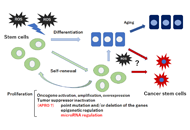
Open Access
Perspective
A budding concept with certain microbiota, anti-proliferative family proteins, and engram theory for the innovative treatment of colon cancer
Yuka Ikeda ... Satoru Matsuda
Published: October 27, 2022 Explor Med. 2022;3:468–478
This article belongs to the special issue The Role of Gut Microbiota and its Metabolites in Gastrointestinal Diseases
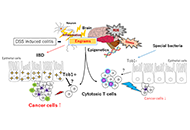
Open Access
Review
Roles of poly(ADP-ribose) polymerase 1 and mitophagy in progeroid syndromes as well as physiological ageing
Naoko Suga ... Satoru Matsuda
Published: October 31, 2023 Explor Med. 2023;4:822–838
This article belongs to the special issue Determinants of Exceptional Longevity
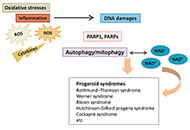
Open Access
Review
The gut microbiome and the immune system
Tenzin Choden, Nathaniel Aviv Cohen
Published: May 31, 2022 Explor Med. 2022;3:219–233
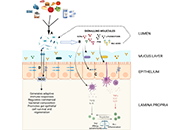
Open Access
Review
3D printing in biomedicine: advancing personalized care through additive manufacturing
Kalyani Pathak ... Barbie Borthakur
Published: December 29, 2023 Explor Med. 2023;4:1135–1167
This article belongs to the special issue Exploration of 3D and 4D Printing in the Biomedical and Personalized Medicine Fields: Merits and Challenges
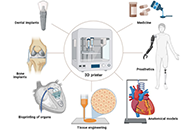
Open Access
Review
Reactive oxygen species in cancer progression and its role in therapeutics
Ranjeet Singh, Partha Pratim Manna
Published: February 22, 2022 Explor Med. 2022;3:43–57
This article belongs to the special issue Reactive Oxygen Species (ROS) in Pathophysiological Conditions

Open Access
Review
Nonalcoholic fatty liver disease and type 2 diabetes: pathophysiological mechanisms shared between the two faces of the same coin
Carlo Acierno ... Ferdinando Carlo Sasso
Published: October 30, 2020 Explor Med. 2020;1:287–306
This article belongs to the special issue Exploring NAFLD/NASH
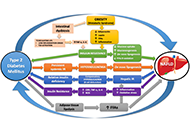
Open Access
Review
Unveiling the role of artificial intelligence for wound assessment and wound healing prediction
Dinh T. P. Le, Tuan D. Pham
Published: August 31, 2023 Explor Med. 2023;4:589–611
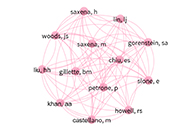
Open Access
Review
3D and 4D printing of biomedical materials: current trends, challenges, and future outlook
Gayan A. Appuhamillage ... Achintha Wijenayake
Published: February 06, 2024 Explor Med. 2024;5:17–47
This article belongs to the special issue Exploration of 3D and 4D Printing in the Biomedical and Personalized Medicine Fields: Merits and Challenges
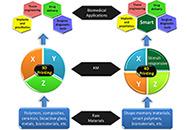
Open Access
Perspective
A U.S. Food and Drug Administration perspective on cannabis research and drug development
Cassandra L. Taylor, Schuyler A. Pruyn
Published: October 31, 2023 Explor Med. 2023;4:813–821
This article belongs to the special issue Beyond Weed: Clinical Applications of Cannabis and Cannabinoids
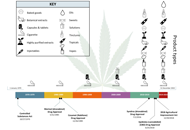
Open Access
Review
The future of cervical cancer prevention: advances in research and technology
Praveen Kumar Chandra Sekar ... Ramakrishnan Veerabathiran
Published: May 22, 2024 Explor Med. 2024;5:384–400
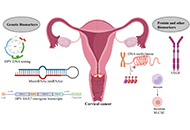
Open Access
Review
The potential anti-cancer effects of melatonin on breast cancer
Naba Kumar Das, Saptadip Samanta
Published: February 25, 2022 Explor Med. 2022;3:112–127

Open Access
Original Article
Cannabis use in cancer patients: acute and sustained associations with pain, cognition, and quality of life
Gregory Giordano ... Angela D. Bryan
Published: April 26, 2023 Explor Med. 2023;4:254–271
This article belongs to the special issue Beyond Weed: Clinical Applications of Cannabis and Cannabinoids

Open Access
Review
Angiotensin-(1-7) and Mas receptor in the brain
Natalia L. Rukavina Mikusic ... Mariela M. Gironacci
Published: June 30, 2021 Explor Med. 2021;2:268–293
This article belongs to the special issue Angiotensins—A Century of Progress
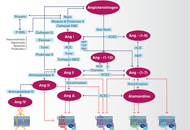
Open Access
Review
Oxidative stress in obesity and insulin resistance
Anastasija Panic ... Esma R. Isenovic
Published: February 23, 2022 Explor Med. 2022;3:58–70
This article belongs to the special issue Reactive Oxygen Species (ROS) in Pathophysiological Conditions

Open Access
Review
Sex differences in non-alcoholic fatty liver disease: hints for future management of the disease
Noel C. Salvoza ... Natalia Rosso
Published: April 30, 2020 Explor Med. 2020;1:51–74
This article belongs to the special issue Exploring NAFLD/NASH
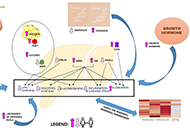
Open Access
Review
Risk factors for the development of lung cancer around the world: a review
Hervé Agonsanou ... Maurice Bergeron
Published: December 29, 2023 Explor Med. 2023;4:1168–1188
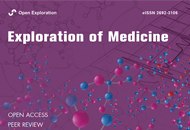
Open Access
Original Article
A large-scale survey of cannabis use for sleep: preferred products and perceived effects in comparison to over-the-counter and prescription sleep aids
Amanda Stueber, Carrie Cuttler
Published: October 25, 2023 Explor Med. 2023;4:709–719
This article belongs to the special issue Beyond Weed: Clinical Applications of Cannabis and Cannabinoids
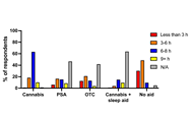
Open Access
Review
Nutritional prospects of wheatgrass (Triticum aestivum) and its effects in treatment and chemoprevention
Neha Minocha ... Parijat Pandey
Published: October 12, 2022 Explor Med. 2022;3:432–442
This article belongs to the special issue Techniques in Repurposing and Targeted Delivery: Bringing a New Life to Shelved Drugs
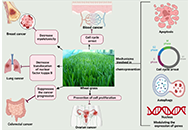
Open Access
Review
Recent advancements in skin cancer treatment: a critical review
Rajat Goyal ... Rohit Sharma
Published: October 31, 2023 Explor Med. 2023;4:782–812
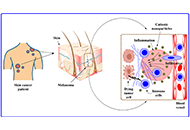
 Previous
Previous